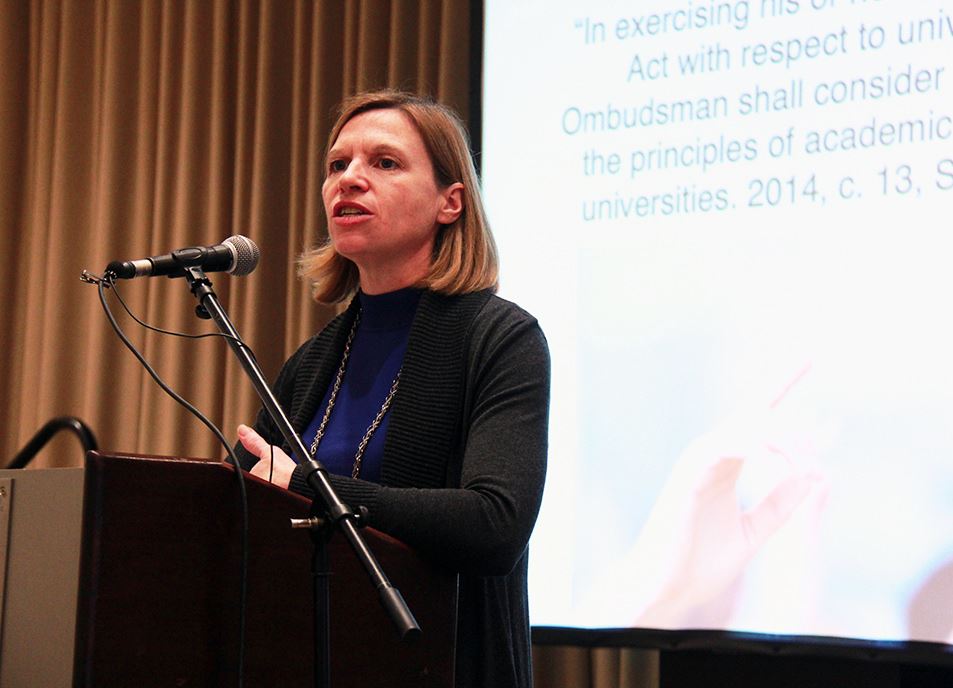New law extended oversight of universities, municipalities and school boards to provincial watchdog
The office of the Ontario ombudsman received new powers on Jan. 1 allowing it to launch investigations into complaints about universities and municipalities in Ontario.
“Very much we’ve seen that colleges, and I expect universities as well, can sometimes be very bureaucratic and you need to really be sensitive to the human impact of complaints and problems,” said acting Ontario ombudsman Barbara Finlay.
The ombudsman’s office is known as an “office of last resort” where people can take complaints that have not been resolved through other channels. They started overseeing school boards on Sept. 1, 2015.
In the Ontario ombudsman’s 2014-15 annual report, there were a total of 72 complaints and inquires about universities, even though they didn’t yet have a mandate for the sector. That was up 76 per cent from the previous year when there was 41.
In the first week of 2016 Finlay said her office received 18 complaints about universities and while it’s still early they are seeing trends in areas such as student services and accommodation for students with special needs.
“The complaints really run the gamut from things that we can deal with very quickly such as OSAP payments, complaints about parking infractions and student housing to more complex things like academic appeals, staff or faculty, student programs, fees and tuition,” said Finlay.
The ombudsman’s office has had the mandate to take complaints about Ontario’s colleges of applied arts and technology since the office was founded in 1975. In 2014-15 there were 110 complaints about the college system to the ombudsman’s office, with another 274 complaints about the Ontario Student Assistance Program.
“Some of the complaints that we’ve dealt with at the community colleges are students who have been lost in the system when they’re trying to access grants or financial aid, they’ve got a problem with course credits or instructors,” said Finlay. “We’re really able to sensitise the college or the university to the impact of the problem and try to work constructively to find a solution to it.”
In addition to individual complaints the Ontario ombudsman can launch special investigations into cases that have broader systemic problems.
In 2009, the Ontario ombudsman’s office released a blistering report on Cambrian College’s health information management program that was being run without certification from the Canadian Health Information Management Association.
The report led to the Ministry of Training, Colleges and Universities issuing a binding policy directive that banned colleges from advertising accreditations from external bodies that have not yet been granted.
There are currently eight colleges and 25 universities in Canada that have an ombudsperson and are members of the Association of Canadian Colleges and University Ombudspersons, but George Brown College (GBC) is not one of them.
A report by the Student Association of GBC’s academic advocacy program in 2014 the argument for an ombudsperson’s office at the college was made stating, “an ombuds office at George Brown would be an addition that would carry many benefits and positive outcomes for not just students but the George Brown College community as a whole.”
Dale Hall, the manager of student concerns at GBC, is currently reviewing the student code of conduct and that could lead to a change in the way that the college handles complaints.


